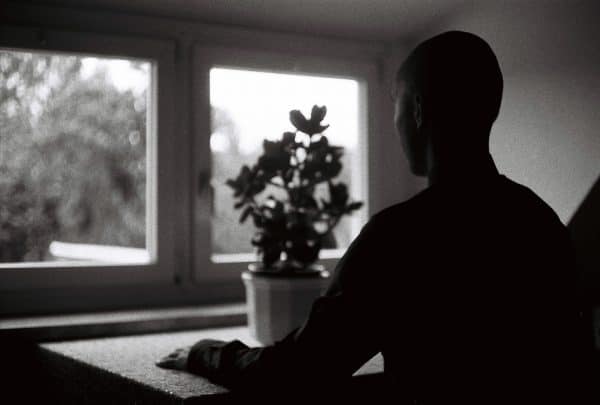In Australia, heavy drinking is often considered normal, so spotting the signs of a drinking problem isn’t easy. Drinking alcohol is deeply ingrained into our culture from a young age. In fact, in some social circles, refraining from drinking alcohol may be considered out of the norm.
This and the fact that we all respond to alcohol differently makes it extremely difficult to recognise a drinking problem when we see one. Luckily, there are some tell-tale drinking problem signs that can indicate if you or someone you love has a dependency on alcohol.
In this article, we’ll explore common drinking problem signs so you can find out if you may be drinking too much, and decide if you need to seek help.
How much drinking is too much?
According to NIAAA, heavy drinking is classified as consuming the following:
- Women; more than 3 drinks on any day or 7 per week
- Men; more than 4 drinks on any day or 14 per week
According to this classification, many Australians may be said to be drinking heavily on any given night of the week, however, those who may be experiencing alcohol dependency drink heavily regularly. Alcohol dependency is classified as the recurring overuse of alcohol.

Common drinking problem signs
Alcohol affects us all differently, so what is normal to one person with a drinking problem may be different from the next. Some people are classified as high-functioning alcoholics; when drinking heavily, they remain responsible and productive. Others, on the other hand, struggle to function normally as a result of alcohol dependence and may experience a significant negative impact on their work, school or home life.
It’s important to note that, typically, no individuals with alcohol dependency will look the same, however, no one is exempt from the fact that drinking heavily over a long period of time will result in the inability to maintain a quality life, meet your responsibilities and have good health.
Mental and social signs of a drinking problem
- Losing interest in regular normal activities or hobbies
- Choosing to drink, instead of dealing with normal obligations or activities
- Feeling irritable and moody
- Becoming overly concerned with when your next drink will be
- Drinking alcohol in the mornings, or to cope with a hangover
- Encouraging others to drink with you
- Prioritising drinking over other aspects of your life that were formerly important, such as events with family and friends, work, or other hobbies
- Becoming isolated from friends or family
Physical signs of a drinking problem
- Drinking alone, or hiding your drinking
- Feeling hungover, even when you’re not drinking
- Withdrawal symptoms, such as sweating, fatigue, feeling nauseous, loss of appetite, headaches and being unable to sleep when you’re not drinking
- The need to drink more alcohol to get drunk than you used to
Worried you might have a drinking problem?
Ask yourself these questions to find out. If you answer yes to more than one of these questions, you may have a drinking problem and it may be time to seek help.
- Do you often drink alone as opposed to drinking with other people?
- Do you drink in the morning before school, study, or work?
- Do you drink as a result of feeling emotional, stressed or to forget about your problems?
- Are you having problems at work, home or at school as a result of your drinking?
- Have you ever tried to hide the fact that you are drinking, or lied to friends or family about how much you drink?
- Have you ever tried to stop drinking, or reduce the amount you drink, but found that it was extremely difficult or impossible?
- Do you ever have blackouts while drinking?
- Do you find yourself getting drunk when you drink, even when you planned on only having one or two drinks?
- Have other people raised concerns about your drinking?
- Have you continued to drink even though you know you may be drinking too much?

Worried you might have a drinking problem?
Over an extended period of time, heavy drinking or alcohol addiction can cause problems. Not only is the alcoholic at risk of injury through accidents by performing high-risk activities while drunk, such as drink-driving, having unsafe sexual encounters or blacking out, but the long-term physical and emotional effects also don’t paint a pretty picture, either.
Long-term heavy drinking can lead to health problems like liver disease, some forms of cancer, memory loss, and can worsen conditions like diabetes. Drinking heavily while pregnant can cause fetal alcohol syndrome.
If the above signs of a drinking problem sound familiar to you, there’s a chance you or someone you love may have a drinking problem. We believe that alcohol dependency stems from underlying issues. Thereby, by assisting you in gaining an awareness of the underlying issues and then develop coping mechanisms to respond to issues in your past or currently in your life, you’ll be better equipped to deal with triggers rather than turning to alcohol as a solution.
To find out more about our alcohol dependency treatments, contact us today so we can help you break the cycle of alcohol dependency and live a happier, healthier life.
Emanuele Latino
Program Director & Psychologist

Emanuele has a compassionate approach to clients’ struggles, in order to promote awareness and initiate together the transformative process. His treatment approaches range from Gestalt, Emotionally Focused Therapy, Dialectical and Cognitive Behaviour Therapy, EMDR, ACT, Neuropsychotherapy, Sensorymotor Psychotherapy and Cape Cod Model for Couple Therapy.



